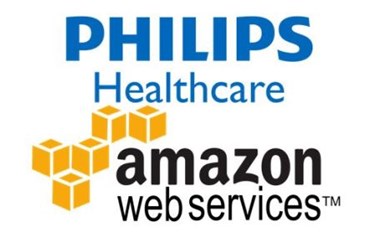Philips Taps Amazon Web Services To Expand Digital Health Solutions
By Jof Enriquez,
Follow me on Twitter @jofenriq

Philips and Amazon declared recently a partnership that will connect millions of devices to the so-called Internet of Things (IoT) using Amazon Web Services (AWS). The deal extends the health data management connectivity and capability of Philips' own HealthSuite digital platform.
“Our HealthSuite digital platform and its device cloud are already managing more than seven million connected, medical-grade and consumer devices, sensors, and mobile apps. With the addition of AWS IoT, we will greatly accelerate the pursuit of our vision. It will be easier to acquire, process, and act upon data from heterogeneous devices in real-time. Our products, and the care they support, are enabled to grow smarter and more personalized over time,” said Jeroen Tas, CEO Healthcare Informatics, Solutions and Services, Philips, in an announcement.
Data from disparate devices requires manufacturers to create expensive new systems to make sure these devices interact smoothly and securely with each other. With AWS IoT as an alternative, Amazon claims to provide a "pay-as-you-go service that handles the heavy lifting" in making these devices interoperable and better managing the continuous stream of data they create. To achieve this, Amazon says its IoT platform uses unified and custom communication protocols, secure mutual authentication, device "shadows," or virtual versions of devices, and a "rules engine" for managing specific types of data, according to the release.
Philips' HealthSuite digital platform, running on the AWS IoT system, will be able to process not just large clinical data sets, but personal health data for chronic disease management. The deal with Amazon is similar to what Philips signed with Salesforce last year — a cloud-based platform to store clinical data from medical equipment, hospital information systems, and remote monitoring apps used by patients with chronic diseases.
"The digital health revolution and the power of the Internet of Things offer tremendous opportunities to positively transform how care is delivered," said Tas in a separate release. "By unleashing data from connected devices and health records, combined with analytics, valuable insights into how we can live and age well can be uncovered. At Philips, we seek to empower consumers to be active participants in their own health. For example, by giving them access to and control over their own health information, making that data more actionable, and by facilitating better collaboration between patients, clinicians and caregivers."
Philips introduced in Germany last month its initial series of personal health programs, whereby consumers can use health devices, related apps, and a cloud-based data analysis performed by HealthSuite. The devices include a health watch, blood pressure monitor, body analysis scale, and ear thermometer. Philips is also collaborating with hospitals, general practitioners, home care nurses, dietitians and patients in Netherlands to create a "connected health model" for people living with type-2 diabetes who will be provided with actionable health data to meet certain clinical goals through self-management.
Philips claims that, every year, over 275 million hospital patients are monitored by Philips equipment, and it sells the same number of consumer appliances into homes across the world. The IoT initiatives with Amazon, Salesforce, and European hospital networks are critical in the company's long-term strategy to leverage its presence in all patient settings as it focuses on healthcare.
